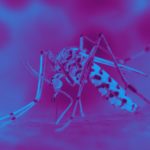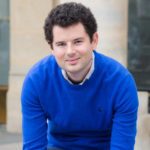Link to Pubmed [PMID] – 28892517
PLoS Negl Trop Dis 2017 Sep;11(9):e0005888
Plasmodium vivax remains an important cause of malaria in South America and the Asia-Pacific. Naturally acquired antibody responses against multiple P. vivax proteins have been described in numerous countries, however, direct comparison of these responses has been difficult with different methodologies employed. We measured antibody responses against 307 P. vivax proteins at the time of P. vivax infection, and at 2-3 later time-points in three countries. We observed that seropositivity rates at the time of infection were highest in Thailand, followed by Brazil then PNG, reflecting the level of antigenic input. The majority of sero-reactive antigens in all sites induced short-lived antibody responses with estimated half-lives of less than 6 months, although there was a trend towards longer-lived responses in PNG children. Despite these differences, IgG seropositivity rates, magnitude and longevity were highly and significantly rank-correlated between the different regions, suggesting such features are reflective of the individual protein.

